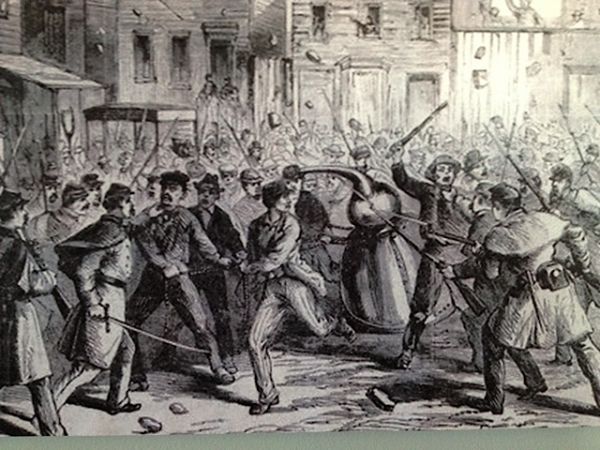Read about how the Whiskey Wars came about, and how they ended, at Smithsonian.Two thousand soldiers had just attacked the neighborhood, targeting moonshiners who were evading taxes on a colossal scale. Since the federal government couldn’t exactly audit the underground operations, it demolished their operations. That morning, November 2, 1870, battalions under the command of Colonel John L. Broome arrived by boat from nearby forts. Guided by the revenue assessors, they left the Brooklyn Navy Yard at 9am and marched through the narrow streets armed with muskets, axes, and crowbars.
It was the latest in a series of raids known as the Whiskey Wars. Illicit distilling had become so widespread, and gangs so violent, that revenue officials and cops needed military backup. One of the first “battles” came in October 1869, when100 army veterans found nine stills after a knife-and-fist fight in an alley. Its success led President Ulysses Grant to authorize more forceful raids, using the army and navy if necessary. The next battle, at dawn two months later, included 500 artillerymen, who landed on the East River by tugboat and wore white-ribbon Internal Revenue badges. They axed barrels and spilled the contents, gushing a stream of rum into the street. Tubs discovered underground were pumped empty. By afternoon they had destroyed stills that could produce 250 barrels of liquor—worth $5,000 in taxes—a day.
Welcome to ...
The place where the world comes together in honesty and mirth.
Windmills Tilted, Scared Cows Butchered, Lies Skewered on the Lance of Reality ... or something to that effect.
Windmills Tilted, Scared Cows Butchered, Lies Skewered on the Lance of Reality ... or something to that effect.
Friday, November 21, 2014
The Whiskey Wars That Left Brooklyn in Ruins
In
1862 the new Bureau of Internal Revenue began taxing whiskey as a means
of funding the Civil War. The tax rose for years until the government’s
take was more than the the value of the liquor, and distilleries went
underground to avoid it. Avoiding the tax was so profitable that even
when the rate was cut, it was avoided at all cost. For a couple of
years, both the moonshiners and the revenuers got completely out of hand
in the Vinegar Hill section of Brooklyn.
Subscribe to:
Post Comments (Atom)


No comments:
Post a Comment